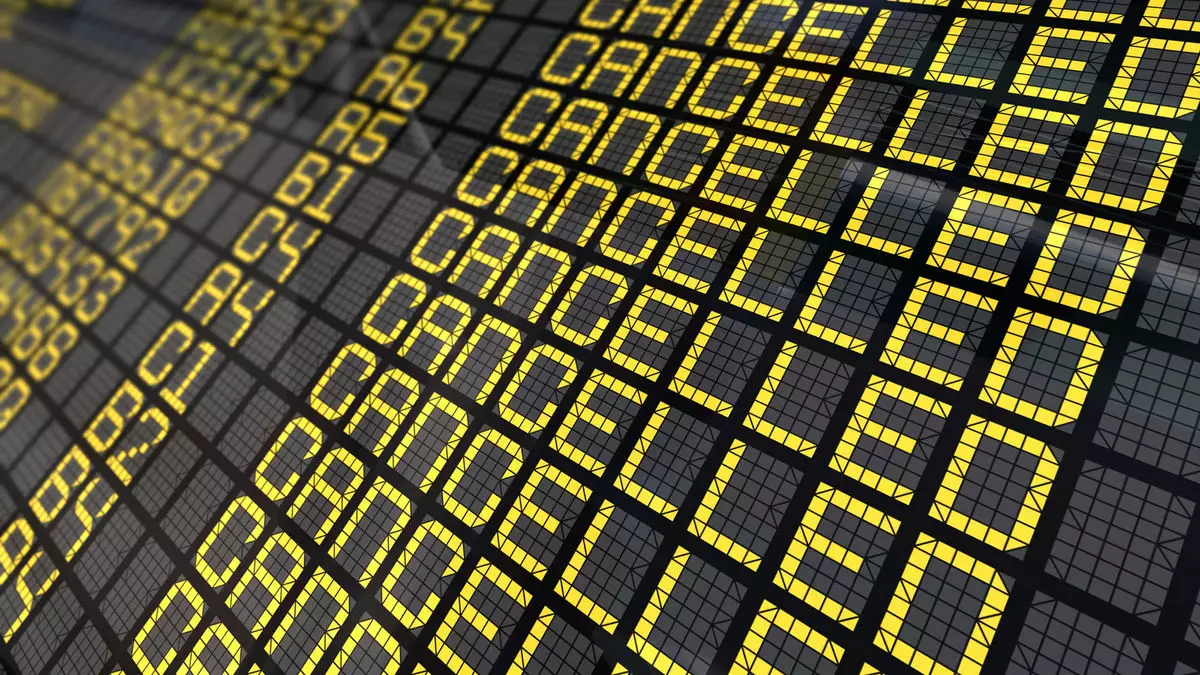As winter storm Blair sweeps across the eastern United States, the aftermath is being acutely felt by travelers returning home from their holiday excursions. The storm has resulted in significant air travel disruption, with over 1,600 flights canceled and 2,600 delays recorded as of Monday morning. This unprecedented level of disruption highlights the vulnerability of the air travel system during peak holiday seasons, as travelers contend not only with cancellations but also with the uncertainty that severe weather brings.
At the epicenter of this storm’s impact is the Washington D.C. metropolitan area, where forecasters predict up to a foot of snow by the end of Monday. The repercussions of the storm have been particularly harsh at Ronald Reagan Washington National Airport, where a staggering 61% of flights have been canceled. Meanwhile, nearby Baltimore and Washington Dulles are seeing their own significant cancellations, with figures standing at 38% and 25%, respectively. This concentration of disruptions reflects how severe weather can disproportionately affect certain regions, stranding thousands of travelers and complicating their return journeys.
Winter storm Blair initially impacted areas in the Midwest, recording nearly 12 inches of snowfall in cities like Kansas City and St. Louis. This winter weather not only caused flight cancellations but also led to widespread travel complications in locations such as Cincinnati, Indianapolis, and even extending down to Dallas, Texas. The storm’s relentless trajectory eastward means travelers should remain vigilant for ongoing disruptions as the weather system continues to move and affect airports far and wide.
In the face of chaos, airlines are stepping up to offer some relief to affected passengers. Many carriers have implemented travel waivers, allowing travelers whose flights have been canceled or delayed significant flexibility in rebooking without incurring additional fare costs. For those unable to secure new travel arrangements, airlines are poised to offer automatic refunds in cases of prolonged delays or cancellations, ensuring that passengers are not left bearing the financial burden of the storm’s fallout.
The disruptions caused by winter storm Blair serve as a stark reminder of the ongoing challenges faced by airlines and passengers during extreme weather events. As air travel becomes increasingly critical during holiday periods, the strain of such disruptions underscores the need for robust contingency planning and communication from airlines. While adverse weather is an unavoidable reality of winter travel, the lessons learned from events like winter storm Blair can help shape future responses and enhance traveler support mechanisms.
As winter storm Blair continues to make its mark across the eastern United States, travelers must remain informed and adaptable. The storm’s impact underscores not just the unpredictability of winter weather, but also the broader challenges it presents to air travel infrastructure and traveler experience during the height of the holiday season.

